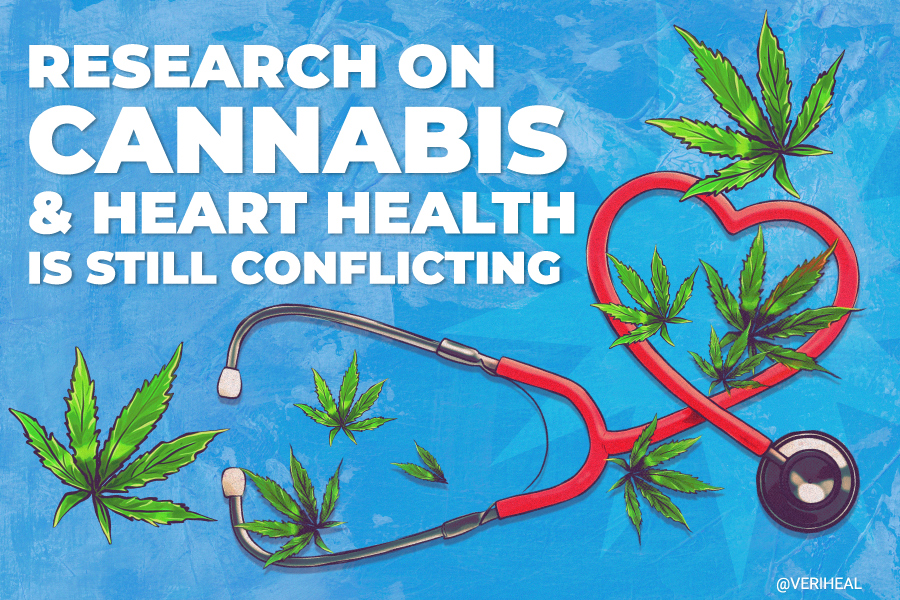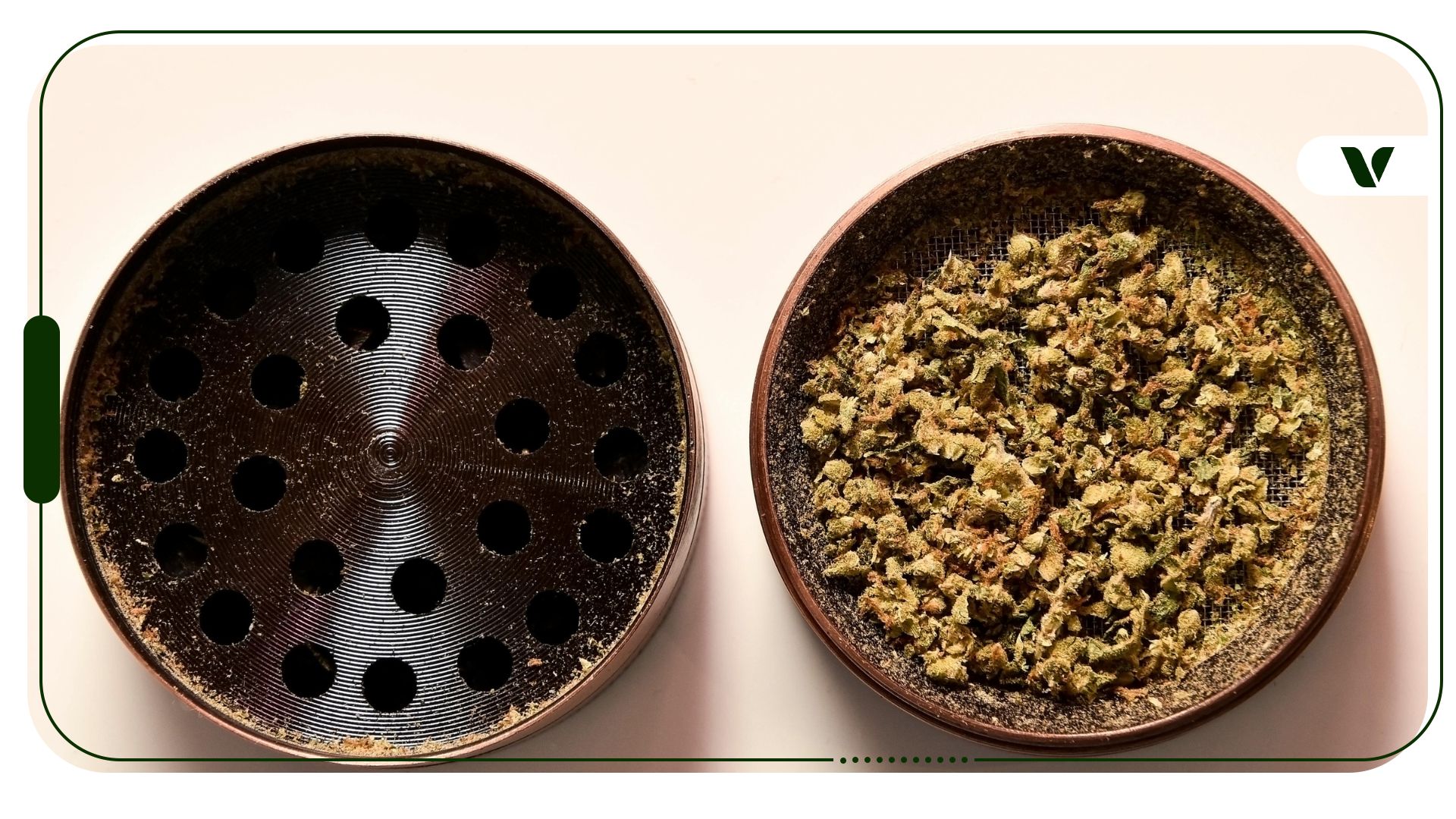Could cannabis be a cure or a potential cause of heart problems? According to a recent study published in The American Journal of Cardiology (AJC), cannabis consumption may amplify certain risk factors of atherosclerotic cardiovascular disease (CVD), an umbrella term used to describe a range of heart and blood vessel-related disorders.
Titled “Relation of Cannabis Use to Elevated Atherosclerotic Cardiovascular Disease Risk Score,” the study into cannabis’ impact on heart health displayed a noticeable surge in incidents of myocardial infarction and stroke after consumption. A Frontiers in Cardiovascular Medicine report claims that new and recurring cases of myocardial infarction arise once every 40 seconds in the U.S., where, according to the Center for Disease Control and Prevention (CDC), one person dies every 36 seconds from cardiovascular disease.
Heart health is an especially hot topic amid a recent surge of myocarditis cases. This report suggested that there were 116 incidents of myocarditis after administration of the mRNA-1273 vaccine. Such extreme levels of heart problems signify a pressing need for research into the root cause(s), not to mention new treatment options.
Researchers Examine Composite CVD Risk
Close analysis of the American College of Cardiology/American Heart Association 10-year atherosclerotic cardiovascular risk score helped researchers understand cannabis’ impact on heart health—in particular, CVD. Additionally, the research team utilized multinomial logistic regression and a low-risk atherosclerotic CVD category to paint a clear picture of the influence that cannabis consumption may have on coronary cases.
Self-reported incidents of cannabis use were plucked from the National Health and Nutrition Examination Survey, with the analysis extending from 2011 to 2018. Of the 7,159 survey respondents, 48.6% were men and 61.5% were of Caucasian ethnicity. People who had previously endured a stroke or myocardial infarction were not included in the study.
In regard to atherosclerotic CVD risk levels, participants were classified as follows:
- Low (<5.0%)
- Borderline (5.0% to 7.4%)
- Intermediate (7.5% to 19.9%)
- High (≥20.0%)
The majority (63.9%) of survey respondents had consumed cannabis at some point or other during their lifetime. Among those who had previously used cannabis, the chance of having a high-risk atherosclerotic CVD score was 60% higher. Individuals who used cannabis more than two times per month had a 79% increased chance of high-risk atherosclerotic CVD score.
Furthermore, respondents who consumed cannabis more than once per day were 87% more likely to have a high-risk atherosclerotic CVD score. The researchers also found a dose-response association between increased frequency of cannabis consumption and an elevated risk of atherosclerotic CVD.
Previous Research Highlights Cannabis’ Heart Health-Enhancing Properties
In spite of the new findings linking cannabis to heart problems, past research tells a different story. For example, this 2020 research report featured in the U.S. National Library of Medicine proves that cannabis’ non-psychotropic cannabinoid cannabidiol (CBD) possesses anti-inflammatory properties. Since chronic inflammation is a primary trigger for a broad spectrum of deadly diseases, such as coronary heart disease, stroke, and high blood pressure, cannabis-based medicines could hold promise as a treatment option.
A separate study featured in the British Journal of Clinical Pharmacology (BJCP) aimed to find out whether or not the cardiovascular system is a therapeutic target for CBD. When administered in vivo, the abundant cannabinoid (which also has antioxidant effects) demonstrated its suitability as a protective agent against ischemia-reperfusion damage. CBD was also capable of fighting against diabetes-associated cardiomyopathy.
A separate model of ischemia-reperfusion illustrated how CBD can successfully shrink infarct size and boost blood flow in animal models of stroke.
COVID Vaccines and Myocarditis
Previous reports indicate that there is a connection between the onset of myocarditis and the administration of messenger RNA (mRNA) vaccines for COVID-19. However, researchers have yet to discover whether or not myocarditis intensity and frequency increase post-vaccination.
Based on the outcome of those previous reports, the estimated occurrence of myocarditis per 100,000 vaccinated people—who had received a minimum of one dose of the coronavirus vaccine—was 2.13 cases. This approximate figure was based on a group of 2.5 million vaccinated HCO members aged 16 and above. Consequently, the study authors say that this “led to great concern in the public and potentially fostered vaccine hesitancy or refusal.”
Inconclusive Evidence on Cannabis and CVD
In summary, cannabis consumption may bolster the risk of developing CVD, but it also may play a role in mitigating heart disease. The AJC study’s authors stress the importance of cannabis users undergoing screening for CVD risk and encourage consumers to practice risk reduction habits.
With previously conducted studies having uncovered the heart-related repercussions of cannabis use—such as the amplified risk of atrial fibrillation, heart attacks, and heart failure—the researchers’ final warning remains all the more relevant. Nonetheless, further research is necessary to fully understand the true link between cannabis and heart problems like CVD.
Author, Share & Comments








